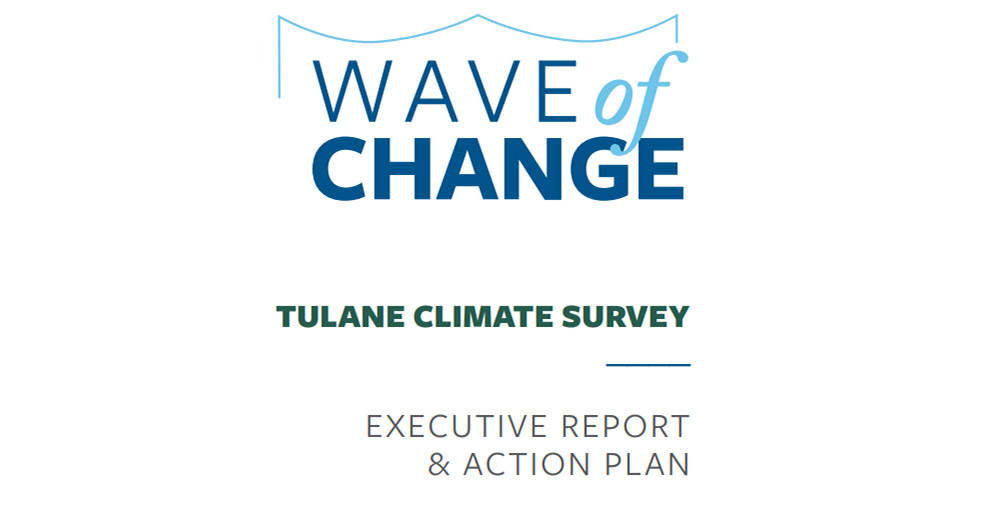Findings from a survey conducted at Tulane University show 40.5 percent of undergraduate women have been sexually assaulted while enrolled at the private New Orleans school.
The results, released last week, also show eighteen percent of male undergraduates have been sexually assaulted.
The 30-minute questionnaire, called the Administrator-Researcher Campus Climate Collaborative survey, also referred to as ARC3, was created by sexual assault researchers and student affairs professionals in response to the White House’s 2014 request to more thoroughly measure campus sexual misconduct, reports Forbes.com.
Reported incidents of sexual assault that occurred off-campus, including during summer break or study abroad, were also included in the statistics.
The survey broadly defined sexual assault as “nonconsensual sexual activity through incapacitation—taking advantage of a victim too drunk to stop what was happening—or force—through physical force such as holding or pinning down or through threats to physically harm the victim or someone close to them.” It further broke down sexual assault into three distinct activities, including unwanted sexual contact, attempted rape and rape.
The survey was sent to 9,958 full-time students during the spring 2017 semester. Each student who responded was rewarded with a $5 Amazon gift card. The survey was completed by 4,644 students, making it a 47 percent response rate.
A similar survey was conducted during the 2014-2015 school year, where 19 percent of female students reported “some type of sexual victimization including unwanted touching, attempted sexual penetration, or completed sexual penetration.” Only 17 percent of the students who were sent the survey responded.
Tulane president Mike Fitts says the school conducted the survey due to the mounting evidence of widespread sexual misconduct across the country. While he is “deeply troubled” by the results, he is not surprised by them. He points to a similar survey conducted by Duke University in 2015 where 40 percent of female undergraduates reported experiencing some form of sexual assault.
Additional Sexual Assault Findings from Survey
LGBQ+ Tulane undergraduates reported even higher victimization rates than their heterosexual classmates. Fifty-one percent of undergraduate LGBQ+ women and 44.3 percent of undergraduate GBQ+ men reported sexual assault compared to 38.5 percent of undergraduate heterosexual women and 12.8 percent of undergraduate heterosexual men.
Undergraduate students of color reported lower rates of sexual assault than their white peers. Overall, 23 percent of undergraduate students of color reported sexual assault. Of the 23 percent, 18 percent of heterosexual women of color reported sexual assault versus 35 percent of white heterosexual women.
Some additional findings from the survey include:
- Only 42 percent of undergraduate women and 23 percent of undergraduate men told anyone about their assault
- Eighty-four percent of undergraduate victims said Tulane supported them
- Seventy-four percent of women and 87 percent of men say alcohol was involved and they were incapacitated during their assault
- The was a friend 16 percent of the time, an acquaintance 37 percent of the time, a current or former partner 22 percent of the time and a stranger 25 percent of the time
Sexual Assault Prevention at Tulane
The report also includes a five-page outline of steps Tulane has taken to prevent sexual assault and what it intends to do to integrate sexual violence prevention.
So far, more lights and cameras have been installed. Education on the topic has also been integrated into student programming throughout the year, not just during orientation, according to The Advocate.
Due to the prevalence of alcohol in sexual assault, fraternities have also agreed not to serve hard liquor and not to allow freshman to participate in Greek events during the first month of the year.
“We do think alcohol is a method of perpetration, so we’ve focused on excessive alcohol use on campus,” says Fitts.
In response to its findings, Tulane has launched a program called “Wave of Change” to create a “prevention culture”. According to a fact sheet from Tulane, the program aims to:
- Increase integration of sexual violence prevention into the Tulane experience
- Increase the visibility of specific issues of intersectionality and sexual violence
- Establish greater means for student engagement
- Expand community support for survivors and encourage reporting
- Articulate a transparent evaluation plan and further research













